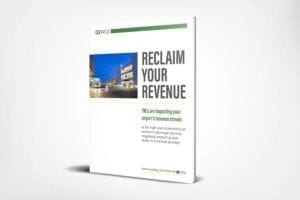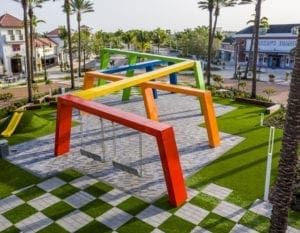
Access Denied
Micromobility has the potential to be an urban asset, but planners must act quickly to ensure people with disabilities are not left behind.
Learn from award-winning professionals — explore our whitepapers, blogs, and the latest industry updates.
Join our dynamic organization of engineers, land surveyors, landscape architects, environmental scientists, and architects!
Talk to a market leader today! We’ll answer any questions you have about our professional services.

Over the past year, WGI has been on the forefront of examining changes and shaping new approaches to planning and community design. The reasons for embracing change range from getting in front of climate change to unlocking value through adaptable public spaces.
Here are four main trends that came from sessions and one-on-one conversations:
Incorporating Trends and Uncertainty into Planning
There were multiple sessions related to forecasting, vulnerability assessments, and adaptive design.
Transforming the suburbs to provide for affordability, diversity, and quality of life remains a key challenge and planning point of interest.

Implementation
Cities/counties are reorganizing and drastically reducing Comprehensive Plans:

Sustainability
Planners are getting very serious about sustainability-related issues, particularly resilient design and adaptation.
Stakeholder Engagement

The issues raised during this conference underscore WGI’s commitment to planning innovation and new approaches to placemaking and mobility systems.

WGI is a national design and professional services firm leading in technology-based solutions for the construction of public infrastructure and real estate development. At WGI, we’re providing Tomorrow’s Infrastructure Solutions Today.

Micromobility has the potential to be an urban asset, but planners must act quickly to ensure people with disabilities are not left behind.

Rapidly changing e-commerce trends and technologies mean big changes for land-use and infrastructure planning.

Is the high cost of providing an excellent passenger journey negatively impacting your ability to fund that journey?

Grocery-delivering bots tackle a simpler challenge than self-driving vehicles. But there are still some challenges yet to be worked out.

WGI helped the project’s owner reimagine and revitalize the outdoor shopping center into a pedestrian-friendly destination for the entire community.

Together, WGI and Urban SDK offer clients the ability to enhance safety, improve mobility, and realize cost savings – using data analytics combined with WGI’s robust infrastructure capabilities.
You’ve been searching for a place like WGI. We look forward to meeting you soon.
Sign up to receive emails to hear our latest news and achievements in our monthly newsletter.
Enter your zip code, and we’ll personalize your experience with local projects, office locations, team members, and more.
WGI supports its associates with meaningful opportunities for growth, strong benefits and perks, while we work collaboratively with clients and co-consultants to shape and improve communities.






WGI is a dynamic organization with opportunities nationwide for engineers, land surveyors, landscape architects, environmental scientists, and architects.